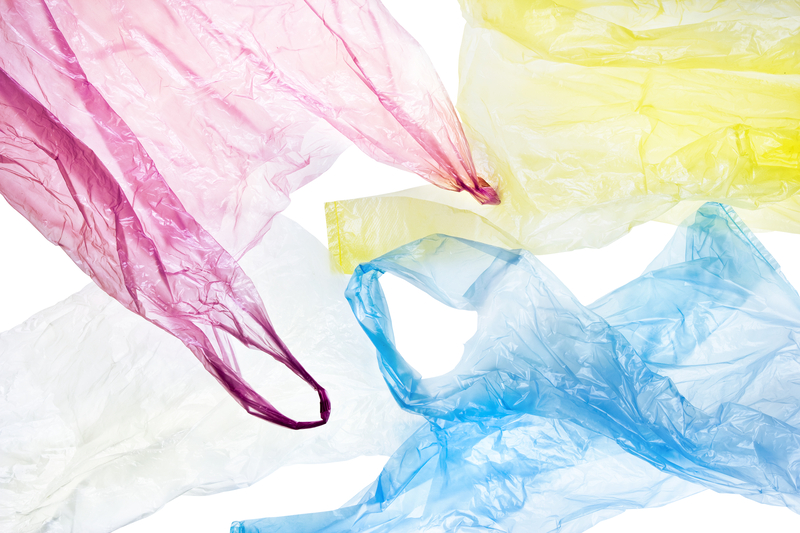Smart Choices for PPE Waste That Benefit the Environment
The global rise in the use of personal protective equipment (PPE), such as masks, gloves, face shields, and gowns, has been both a life-saving public health response and an environmental concern. As people aim to protect themselves and their communities from viruses and pollutants, PPE waste management has become a growing challenge. What are the best solutions for PPE waste that consider both safety and environmental sustainability?

Understanding the Environmental Impact of PPE Waste
PPE, by its very design, is meant to be disposable. Materials such as polypropylene, latex, and polyethylene ensure effectiveness against contaminants but pose problems for traditional waste systems. The surge in production and improper disposal has created mounting issues such as:
- Increased landfill waste: Most PPE is non-biodegradable, persisting in landfills for decades.
- Microplastic pollution: Degrading plastic-based PPE releases microplastics into soil and water, harming ecosystems.
- Animal hazards: Discarded gloves and masks can entangle or be ingested by wildlife.
- Incineration emissions: Burning PPE can release toxic emissions if not managed with proper controls.
Understanding these impacts is the first step in making eco-friendly choices for PPE waste disposal and moving toward more sustainable behaviors.
Smart Choices for Managing PPE Waste Responsibly
The need for PPE waste solutions that support environmental health has never been more urgent. By implementing the following smart choices, individuals, organizations, and policymakers can significantly reduce the environmental footprint of PPE.
1. Proper Segregation and Collection
One of the most critical steps in managing PPE waste is proper segregation at the source. This means separating used PPE from other types of waste, including recyclables and organic materials.
Why is segregation essential?
- It minimizes contamination, allowing for possible recycling or specialized treatment.
- It reduces the risk of spreading infection among waste handlers and the public.
- It supports traceable and systematic disposal processes.
Using clearly marked disposal bins in hospitals, offices, and even public spaces encourages proper PPE waste collection. Education campaigns and visible instructions can improve compliance rates among users.
2. Exploring PPE Recycling Initiatives
Traditionally, most PPE went straight to landfill. However, there are innovative programs that focus on recycling single-use PPE} such as masks and gloves.
- Specialized recycling facilities: Companies in the US, UK, and Europe are now accepting specific PPE waste streams. These facilities use advanced cleaning and melting technologies to repurpose used PPE into construction materials, garden furniture, or new packaging.
- Masks to road materials: Some initiatives transform collected masks into building blocks for roads and pavements. This solution not only diverts waste from landfills but also contributes to infrastructure.
Participation in PPE recycling programs extends the lifecycle of these materials and decreases reliance on virgin resources.
3. Selecting Eco-Friendly PPE Alternatives
Green PPE choices can drastically cut down on waste generation. When possible, consider switching to:
- Reusable masks and gowns: Made from washable textiles, these can be sanitized and used multiple times, significantly reducing disposal rates.
- Biodegradable materials: Some companies manufacture masks, gloves, and face shields from plant-based polymers. These degrade much faster in composting systems.
- Minimal packaging PPE: Opt for products with reduced or recyclable packaging to cut overall waste.
Making smart, sustainable PPE selections is a proactive approach to minimize environmental footprints from the start.
4. Participating in Extended Producer Responsibility Programs
Extended Producer Responsibility (EPR) involves making manufacturers and suppliers accountable for the end-of-life stage of their products, including PPE. Under EPR:
- Producers develop and finance take-back schemes for used PPE.
- Companies invest in the design of recyclable or compostable PPE products.
- Shared responsibility models between corporations, healthcare providers, and consumers are promoted.
Advocating for EPR legislation or supporting businesses with take-back initiatives shows a commitment to environmental stewardship in PPE waste handling.
5. Safe Incineration with Energy Recovery
When recycling is not feasible due to contamination or health risks, controlled incineration is sometimes necessary. But it does not have to be purely destructive to resources.
- Energy-from-waste plants: Modern facilities can safely incinerate PPE while capturing the produced heat to generate electricity or heating for buildings.
- Air pollution controls: Advanced filtering and scrubbing systems minimize emissions to the atmosphere, making incineration cleaner.
By prioritizing plants with energy recovery and strict emissions standards, incineration can be a last-resort but still environmentally responsible PPE waste strategy.
Educating and Engaging Communities for Better PPE Waste Practices
Changing the landscape of PPE waste requires more than technological or product-based solutions. Public awareness campaigns, clear signage, and school or workplace training play a substantial role in reinforcing smart habits.
- Host workshops on correct PPE disposal methods.
- Share success stories of recycled PPE projects in local communities.
- Work with local businesses to pilot new eco-friendly PPE initiatives.
- Create incentives and competitions for innovative PPE waste reduction ideas.
Through consistent education and engagement, collective behavior can shift toward more responsible PPE waste management.
Policy and Regulatory Actions for Sustainable PPE Waste Solutions
Governments and regulatory agencies have a critical role in steering PPE waste away from landfills and incinerators. Key policy options include:
- Setting standards for recyclable or biodegradable PPE: Introducing product standards encourages innovation and greener manufacturing.
- Subsidies for PPE recycling programs: Grants and incentives make it easier for startups or municipalities to establish dedicated PPE recycling plants.
- Mandatory PPE waste segregation in healthcare settings: Robust segregation protocols can unlock new recycling opportunities while keeping staff safe.
- Penalties for illegal dumping: Enforcing anti-littering laws helps keep PPE out of waterways and off urban streets.
Collaboration with international bodies can align best practices across borders, supporting a global reduction in PPE waste impact.

The Future of Sustainable PPE: Innovation and Collaboration
As technology evolve and the urgency for climate action grows, solutions for sustainable PPE waste will also advance. Promising trends include:
- Smart bins: Automated disposal units that sort and compress PPE waste for easy collection.
- Enzymatic recycling: New chemical processes that break down polymers in PPE faster than traditional methods.
- Zero-waste healthcare models: Hospitals striving for holistic waste reduction, including reusable PPE and closed-loop systems.
Partnerships between governments, industry, and the public will be crucial for scaling successful pilots and mainstreaming green innovations.
Conclusion: Every Choice Matters for a Cleaner Tomorrow
PPE waste does not have to be a permanent problem for the environment. With smart choices at every stage - from purchase to disposal - we can significantly reduce the ecological footprint of masks, gloves, and face shields.
- Segregate and dispose of PPE responsibly.
- Participate in recycling and take-back programs.
- Choose reusable and biodegradable PPE wherever possible.
- Support policies and companies aiming for smarter PPE waste management.
- Educate others and promote awareness in your community.
By making environmentally conscious PPE waste decisions, every individual and organization plays a part in a cleaner, safer, and more sustainable world. The path to smarter PPE waste is clear: it's time to make every action count for our health - and for the planet.
